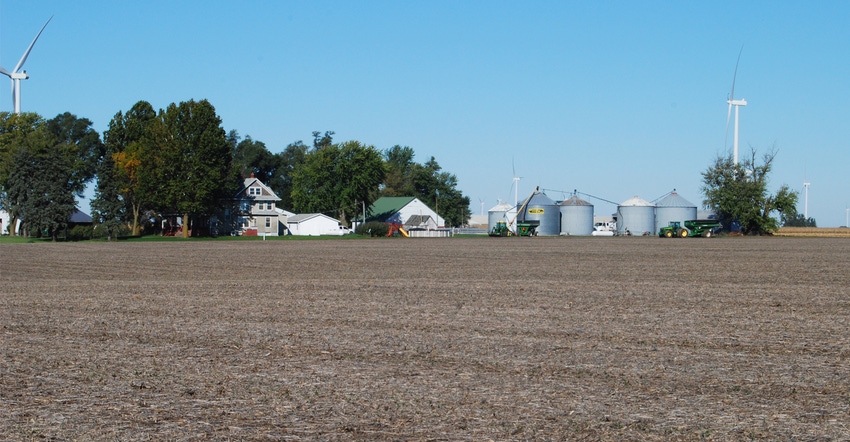October 22, 2020

2020 has been a hard year for everyone, especially those that have lost close family members. Nothing can fully prepare a family for the loss of a loved one, but there are many items that farm families can discuss and prepare for before the unexpected loss of a farming partner or spouse.
With the new Year and winter months ahead, it is a good time to hunker down, and start or continue an important conversation regarding your farm succession plan with your family and farm successors. Having a basic discussion about “the plan” with family members is key to the success of an estate or succession plan. It also helps prevent feuds in the family.
It is critical for farm families to understand the answers to the following questions: What happens when there is a death of a family member involved in the farming operation? What is the law if the family member dies without a will or a plan? What is the current thinking on federal estate tax exemptions and tax basis issues in light of the November election?
Probate and trusts
Probate is a court-administered procedure designed to transfer assets upon death. This process would apply if a person dies without a will or even if a person dies with no plan. If a person dies without a will, or “intestate,” Iowa law would apply and sets forth the order of who inherits from that person.
Probate may be avoided if a farm family has set up or used revocable trusts and properly funded those trusts. A revocable trust can be changed during the life of the grantor of the trust. Also, probate might not be necessary if an asset was owned jointly with a spouse or if there is a survivorship designation. This could apply if there is a joint bank account or land is held as joint tenants with rights of survivorship. It could also apply to retirement accounts or accounts that are transfer on death or have beneficiary designations in place.
Land titles
It is essential to understand for purposes of estate or trust administration, how the family owns farmland or other assets. In a joint tenancy with right of survivorship, the surviving joint tenants inherits the portion owned by the other tenants when they die. The key words in this type of tenancy are “with right of survivorship.”
A tenancy in common means that the co-tenants all own an undivided interest of the entire property. A tenancy in common lacks the survivorship component associated with the joint tenancy with right of survivorship. In other words, a tenant in common may sell, transfer, gift or will their undivided ownership interest to whomever they choose. It is quite common for parents to leave each of their children an undivided, but equal, interest in the farmland they own upon their death.
Tax concerns?
When there is a death in the farm family, look to your lawyer, farm CPA or accountant to guide you in all tax matters. It is important to ensure that all filing deadlines are met and that you have a good understanding of tax implications from a state and federal level. Your attorney or accountant will assist you in filing the appropriate returns.
The value of the assets owned by the farming spouse at their date of death determines the tax that could be due to the federal government, if any. This year, the first $11.58 million of assets are exempt from estate tax per person. Thus, a farm family can accumulate about $23.16 million this year and be exempt from federal estate tax if tax planning is handled properly. Remember, no estate tax is due on property distributed to the surviving spouse. Federal estate tax would come into play at the death of the second spouse, if there are assets above the exemption amounts.
Further, certain assets get a “step up” in basis upon death, including farmland — meaning that the value at the date of death is the basis that the person inheriting will receive. Thus, if that person sold the farm, they would have some relief from a hefty capital gain bill with the Internal Revenue Service.
There is no Iowa inheritance tax due upon death if the net estate of the person who passes is less than $25,000, or if the estate is left to a U.S. charitable, religious, education or veterans organization, or if estate shares are left to a surviving spouse or to lineal ascendants or descendants (such as children). So, if you wanted to leave some or all of your estate to a sibling, niece or nephew, aunt, uncle or cousin, the estate would be subject to the inheritance tax.
Seek advice
As always, it is key to consult with an attorney throughout the process. Relying on your trusted team of experts is the best way to successfully administer an estate or trust in an emotionally trying time. It is wise to interview the attorney regarding fees and the best course of action in administration, and to inform the attorney about your unique farm business.
What’s next? In political realms, there has been a lot of discussion about the future of the federal estate tax and the exemptions that will apply in future years. It is important to review your estate plan every three to five years to ensure that your plan is keeping up with changes in the law. As attorneys, we don’t hold a crystal ball, but we will try to keep you informed of big changes that could affect your plan.
Herbold-Swalwell is an attorney with Brick-Gentry in Des Moines, Iowa. Email [email protected].
About the Author(s)
You May Also Like






